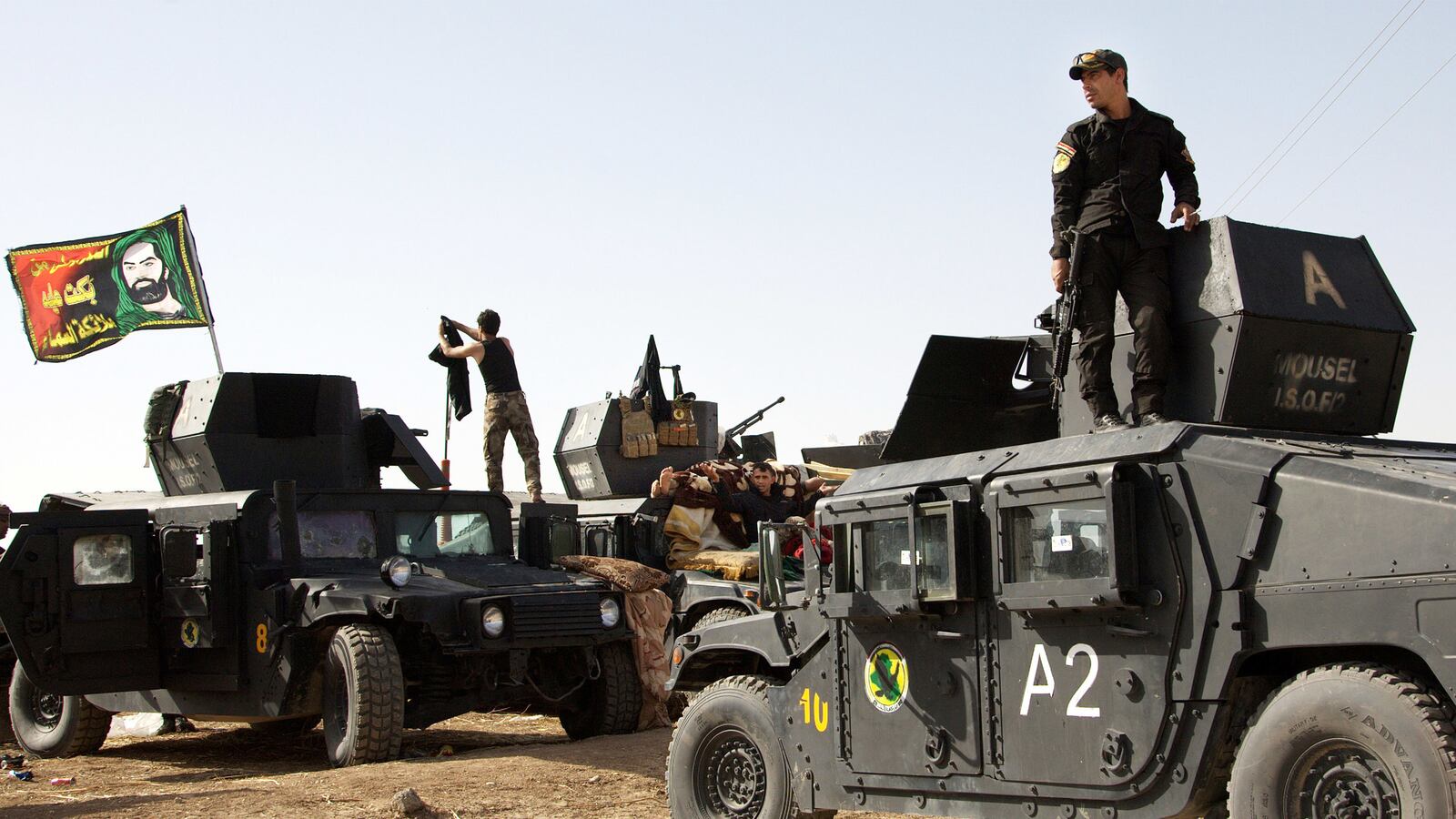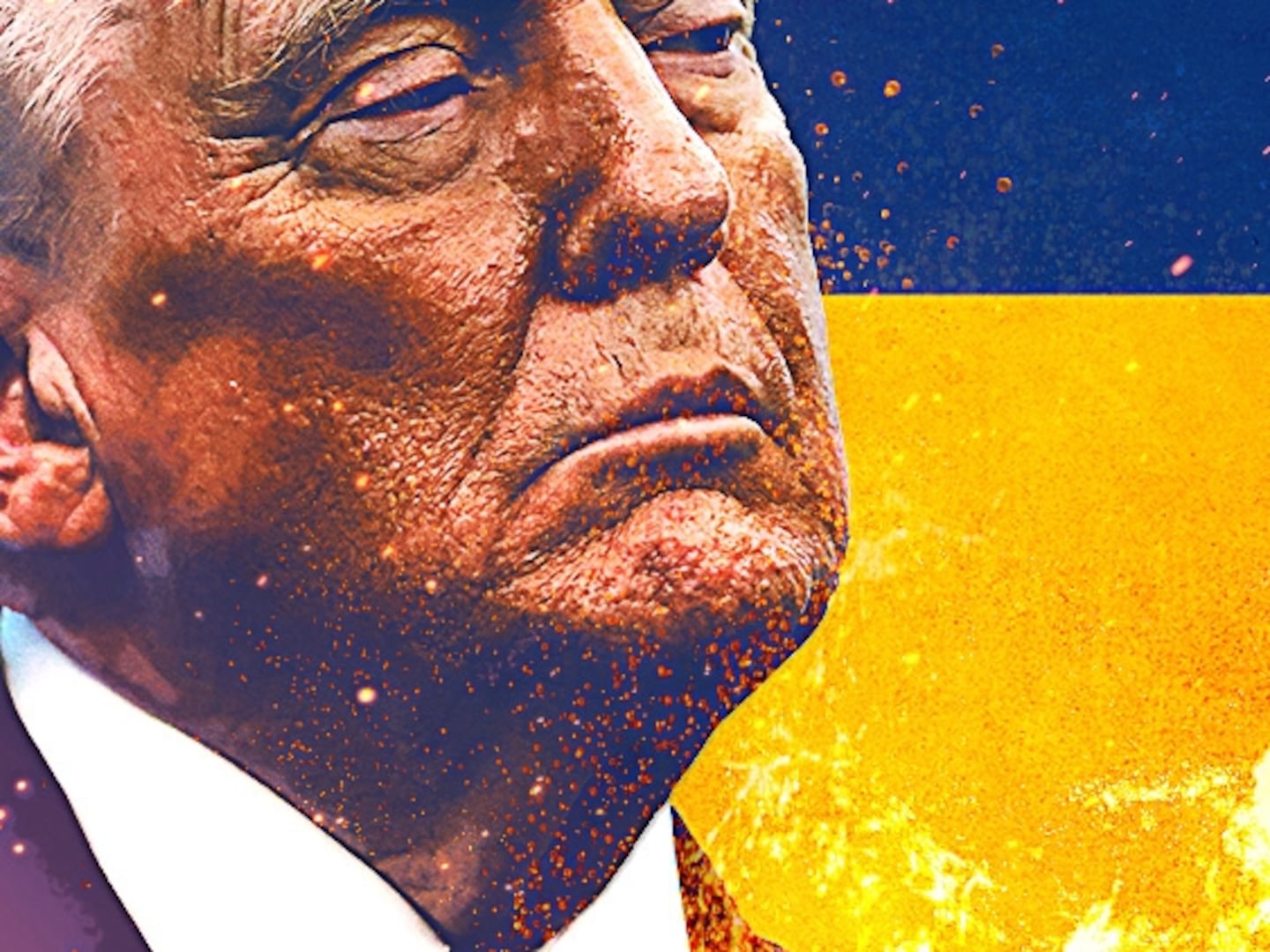Iraqi Prime Minister Haider al-Abadi announced Sunday night that the Iraqi operation to liberate his nation’s second largest city, Mosul, from the self-proclaimed Islamic State had begun.
“We started fighting ISIS in the outskirts of Baghdad, and thank God we are now fighting them in the outskirts of Mosul,” he said on Iraq television.
The widely anticipated fight to reclaim the city, the capital of the ISIS “caliphate” in Iraq, is considered a decisive battle against the increasingly flailing terror group. If ISIS loses control of Mosul, its grip in Iraq could effectively end, having already lost control of the Iraqi cities of Fallujah, Ramadi, Tikrit, Hit, among others.
It was in a mosque in Mosul two years ago that ISIS leader Abu Bakr al-Baghdadi announced the creation of his self-proclaimed caliphate.
ISIS would return the Islamic world to “dignity, might, rights, and leadership,” he said then.
Mosul’s importance in the so-called caliphate makes the battle to reclaim the city unlike any other battle between the Iraqi forces, backed by the U.S.-led coalition on one side and the terror group on the other. ISIS has been moving fighters into the city, building trenches, and planting explosives for Iraqi forces entering in anticipation of the battle. The terror group has promised to throw every resource it has to keep Mosul under its control.
United Nations officials have warned the fight to retake Mosul could lead to a humanitarian crisis as it anticipates as many as 1.2 million civilians could be uprooted by a battle that by anyone’s measure will be among the fiercest seen in the two-year war against ISIS.
ISIS can ill afford another major loss. Earlier Sunday, ISIS lost the Syrian city of Dabiq to Syrian opposition forces, backed by Turkey.
ISIS once declared it would fight to the death for that northern city. According to ISIS, citing an ancient prophecy, Dabiq would one day become the site of an apocalyptic battle between Christians and Muslims.
The group named its English-language magazine, a keystone to its propaganda war, after the city. So while the city, which had been under ISIS control since August 2014, was not a major strategic loss, it arguably was the biggest defeat to ISIS’s propaganda war.
Such losses have arguably made Mosul, an already important city, critical to ISIS’s future. Perhaps because of that, U.S. officials put the timeline for the battle to retake it at anywhere from weeks to months.
There are several hundred U.S. forces supporting Iraqi forces in the Mosul campaign, many stationed 30 miles south of the city. In addition, the U.S.-led coalition will conduct airstrikes on behalf of the Iraqi campaign. But U.S. officials insist its coalition is only in a support role, saying the Iraqis are leading the timing and ground force maneuvers.
“Tonight, PM Abadi issued orders to initiate major operations to liberate #Mosul after two years of darkness under #ISIL terrorists,” the State Department’s special presidential envoy for the Global Coalition to Counter ISIL, Brett McGurk, tweeted.
“Godspeed to the heroic Iraqi forces, Kurdish #Peshmerga, and #Ninewa volunteers. We are proud to stand with you in this historic operation.”
Mosul fell under ISIS control in June 2014, after Iraqi forces fled the city as ISIS fighters began attacking.
The military battle is just the beginning of the challenge confronting Abadi. Should the city fall, how will Iraq ensure that a group like ISIS cannot return? What role will Sunnis have in the city, given Iraq’s Shiite-led government? The Iraqis are deploying Shiite militia forces to take part in the battle, which could stoke already frail sectarian relations.
And what role will the Kurds play in the post-ISIS Mosul? They are a significant part of the city’s population and will be key to its fall out of ISIS hands.
Many of those answers will come in the weeks ahead. But even now, as Iraqi forces appear to be firing the opening salvo in the most important battle so far against ISIS, U.S. officials have said how Mosul falls will be as important to its future—and the ability of groups like ISIS to return there—as the timing of its fall.






